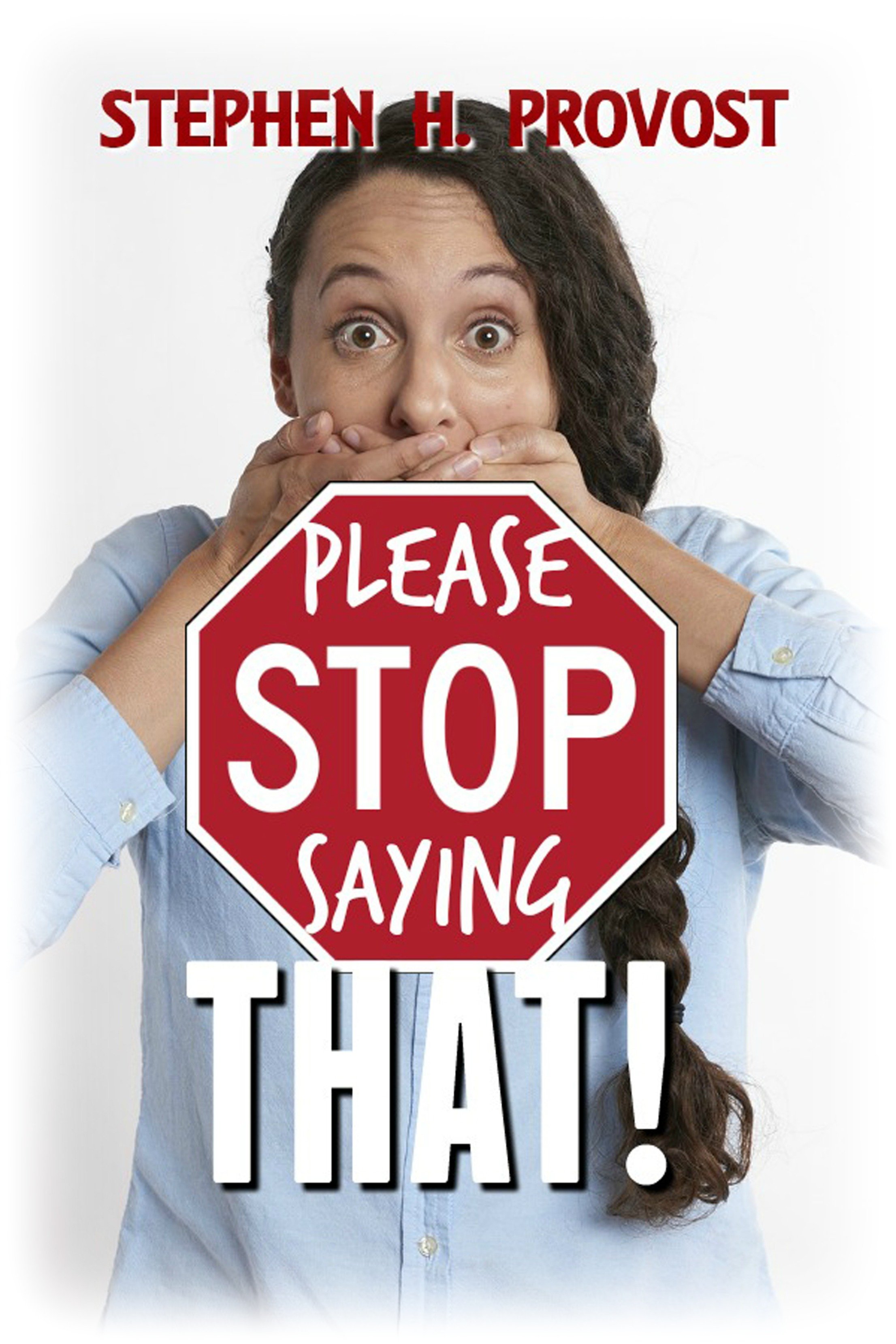Please don't call me "woke" — here's why
Stephen H. Provost
According to Merriam-Webster, being “woke” is “chiefly US slang” that means to be “aware of and actively attentive to important facts and issues (especially issues of racial and social justice).”
I like to think I’m all that. I also like to think that, when I’m not, I’m willing to listen and try to be better.
But please, please, please don’t call me woke.
I don’t like buzzwords. I even wrote a book poking fun at them. English is complicated enough as it is, yet in my work as a writer and editor, I’m continually finding new words make it even more challenging – words that simply aren’t necessary. “Mansplaining” is another one of those. Why use “mansplaining” when “condescending” would do just fine? (And isn’t the word “mansplaining” itself a little condescending? Should we accuse women who use it of “womansplaining?” Perish the thought.)
Woke is kind of like that. The first word of the Merriam-Webster definition above seems just fine to me: aware. Or how about “enlightened”? Enlightened about what, you may ask? Isn’t “woke” a term that’s meant to define a specific kind of awareness? Sure, it is. It’s shorthand. Using shorthand is convenient, but it can also cause problems, and those problems are precisely why I don’t want to be called “woke.”
First off, the more you use labels as shorthand, the less you have to explain what you mean. If you’re lazy, that’s a good thing. But if you want other people to understand what you’re saying, it can get in the way. They’ll already have their own ideas of what your label means, and those ideas may be entirely different than what you intended to convey. Isn’t it better to have a deep, thoughtful discussion of issues such as prejudice, equality, bigotry, injustice, and related matters than to simply say, “I’m woke”?
But we don’t have time for those discussions, so instead, we judge people who don’t understand or embrace a term like “woke” as unenlightened (un-woke?). That’s not only condescending, it’s presumptuous.
That’s one of the biggest problems with terms like woke: Instead of facilitating important discussions, they impede them. They work like passwords at a speakeasy. (No, I’m not old enough to remember Prohibition. I read.) If you know the password, you’re in. If you don’t, you’re viewed with suspicion and left out in the cold, judged unworthy of entry into the clique that understands the word – in this case, woke.
I don’t like cliques. I prefer to think for myself, thank you. That means I’m willing to listen and think about things like bigotry and discrimination. It doesn’t mean I’m willing to adopt your label, because labels, in my experience, impede such discussions. And those are precisely the kind of discussions we need to keep having if we’re to get to a better place of inclusion, acceptance, and celebration of who and what we are as individuals.
Even more problematic, the word “woke” has become a sort of target on the back of people who support the things it stands for. It’s far easier to dismiss someone as “woke” than it is to criticize ideals such as equality, diversity of thought, respect, and human dignity. Words like “woke” give bigots (Elon Musk, for example) an excuse to repudiate those things in their quest for a false sense of supremacy and the pursuit of profit gained through exploitation.
If Elon Musk, or anyone, for that matter, were to call me “woke,” I’d respond that, no I simply believe in the ideals I’ve listed above. If you have a problem with equality and respect, please simply admit it. Don’t deny it by trying to turn the tables and by calling me “woke.” That’s your label, not mine. And if you’re not willing to engage on issues that lead to things like exploitation, racism, sexism, and hatred, you’re part of the problem.
I prefer to be part of the solution – not by using buzzwords, but by engaging in meaningful discussion. We’re having a harder time doing that these days, and because of it, we’re in deep trouble.
Stephen H. Provost is a former journalist, editor, and author of more than 40 books. He wrote this in the morning. After he woke up.

